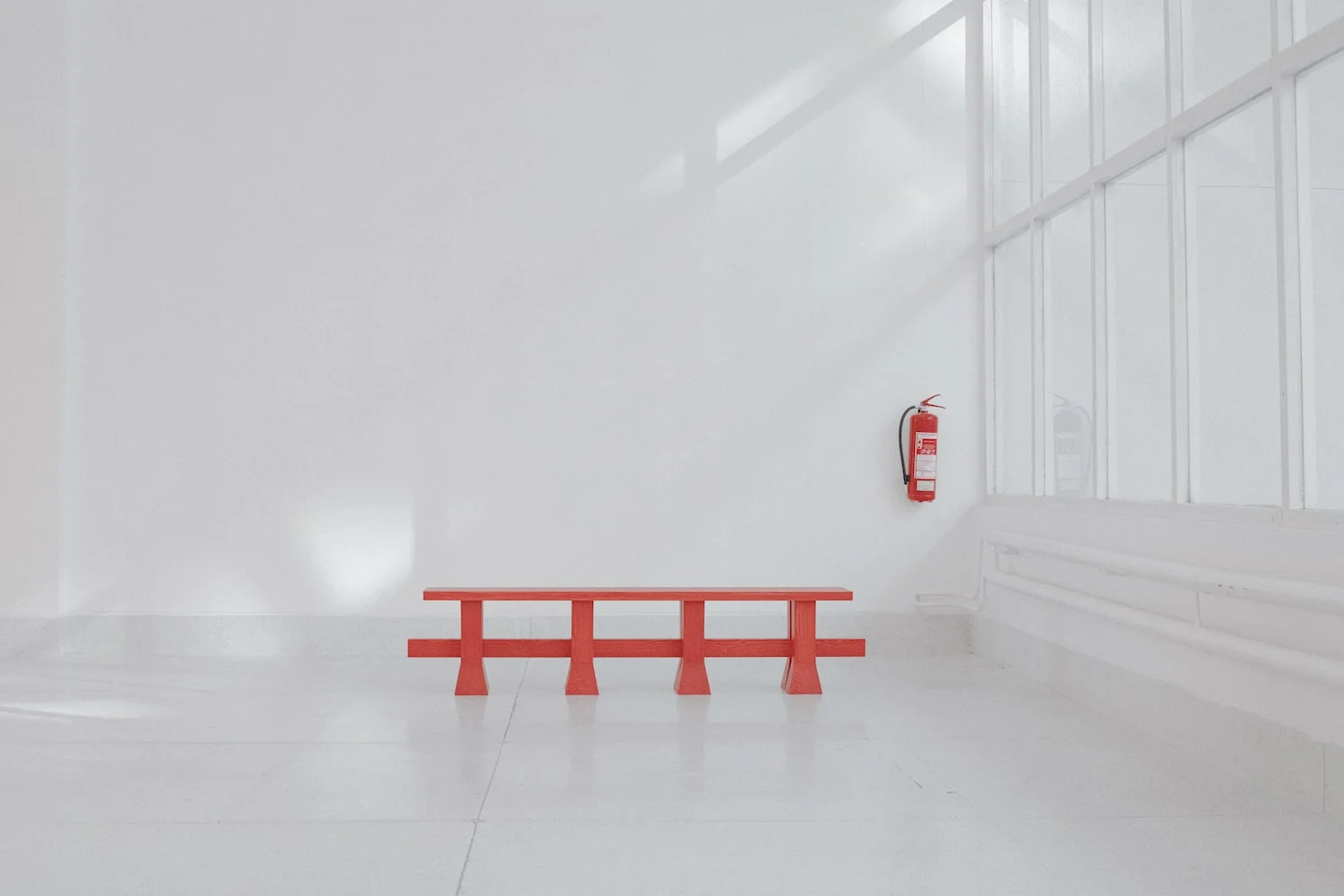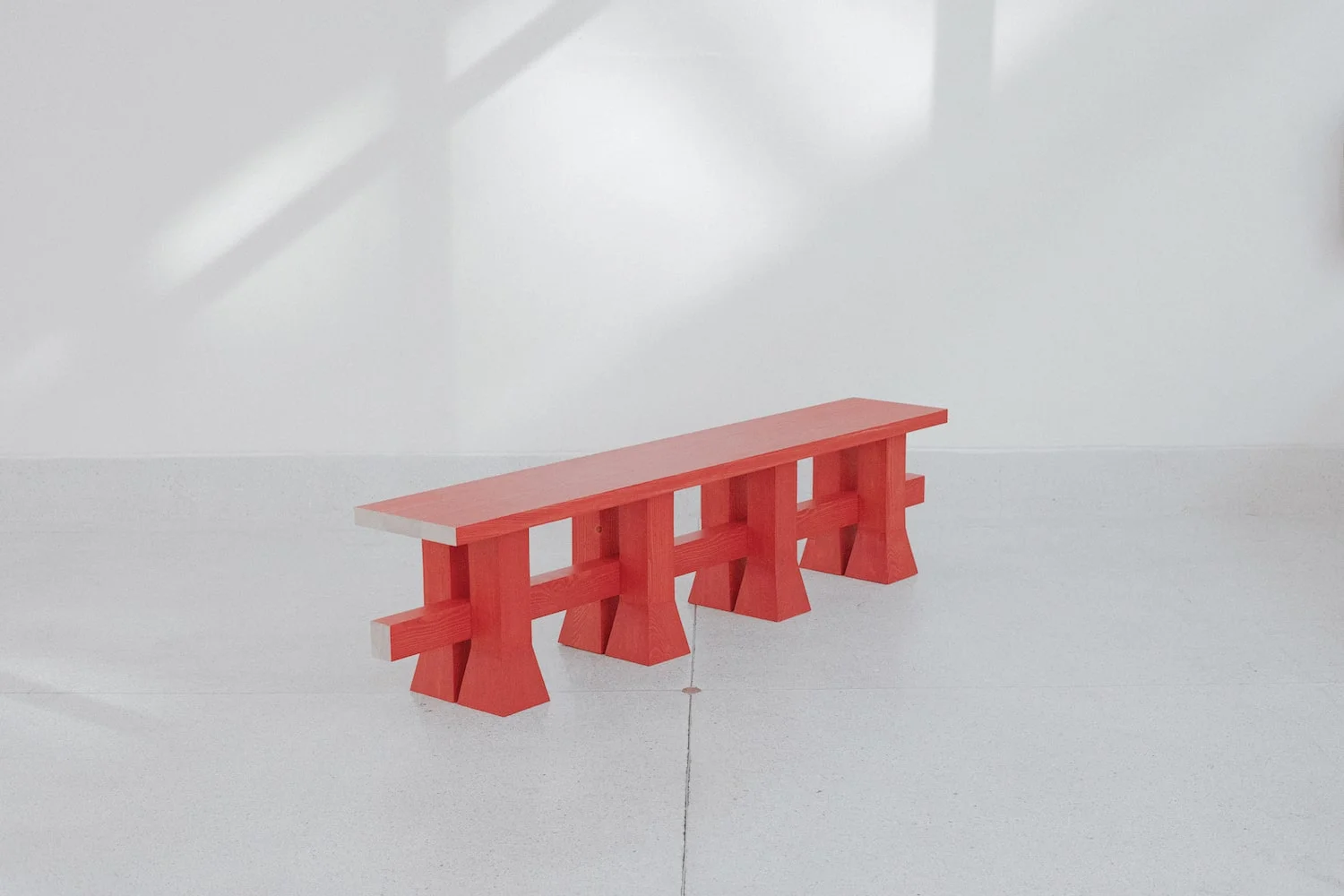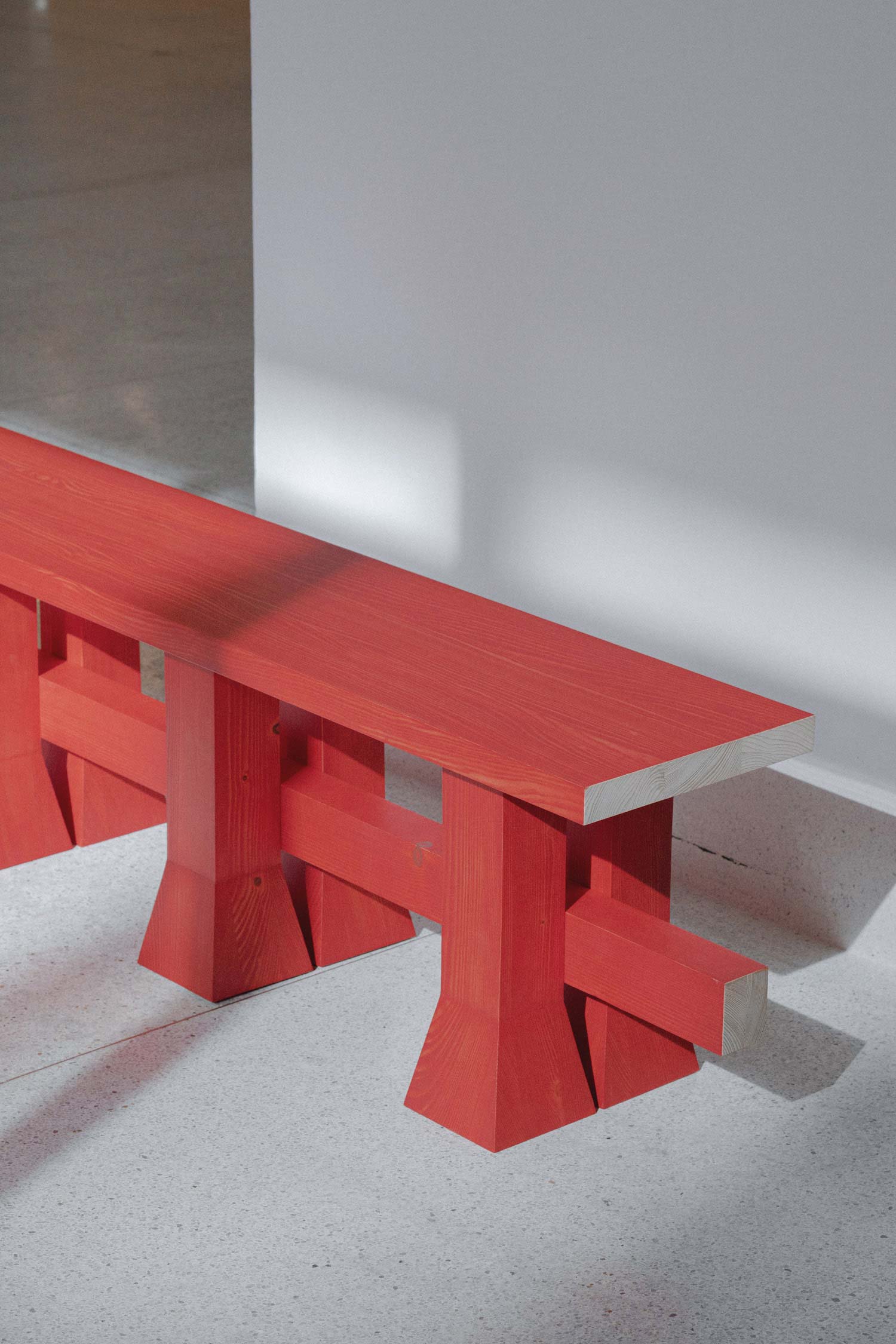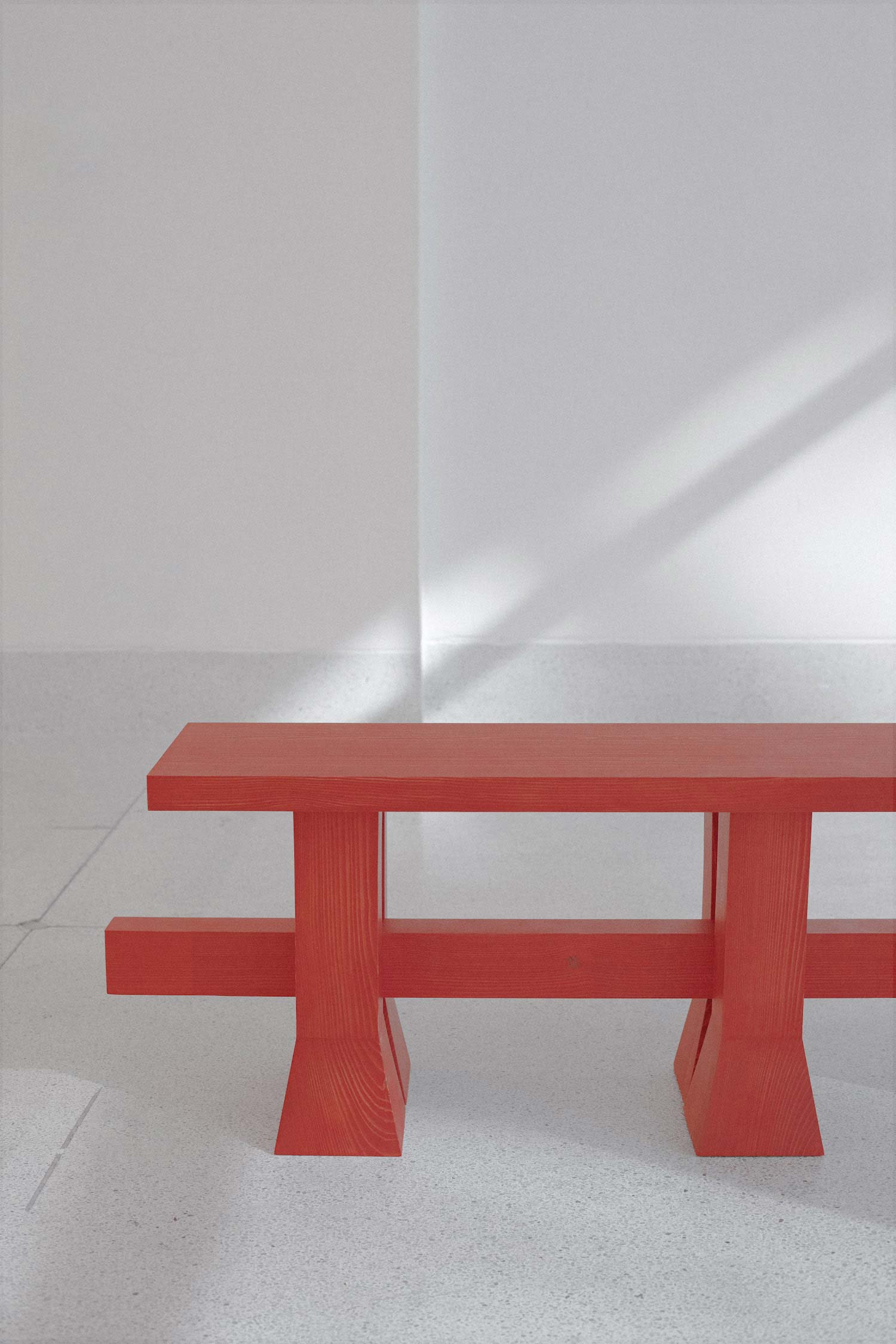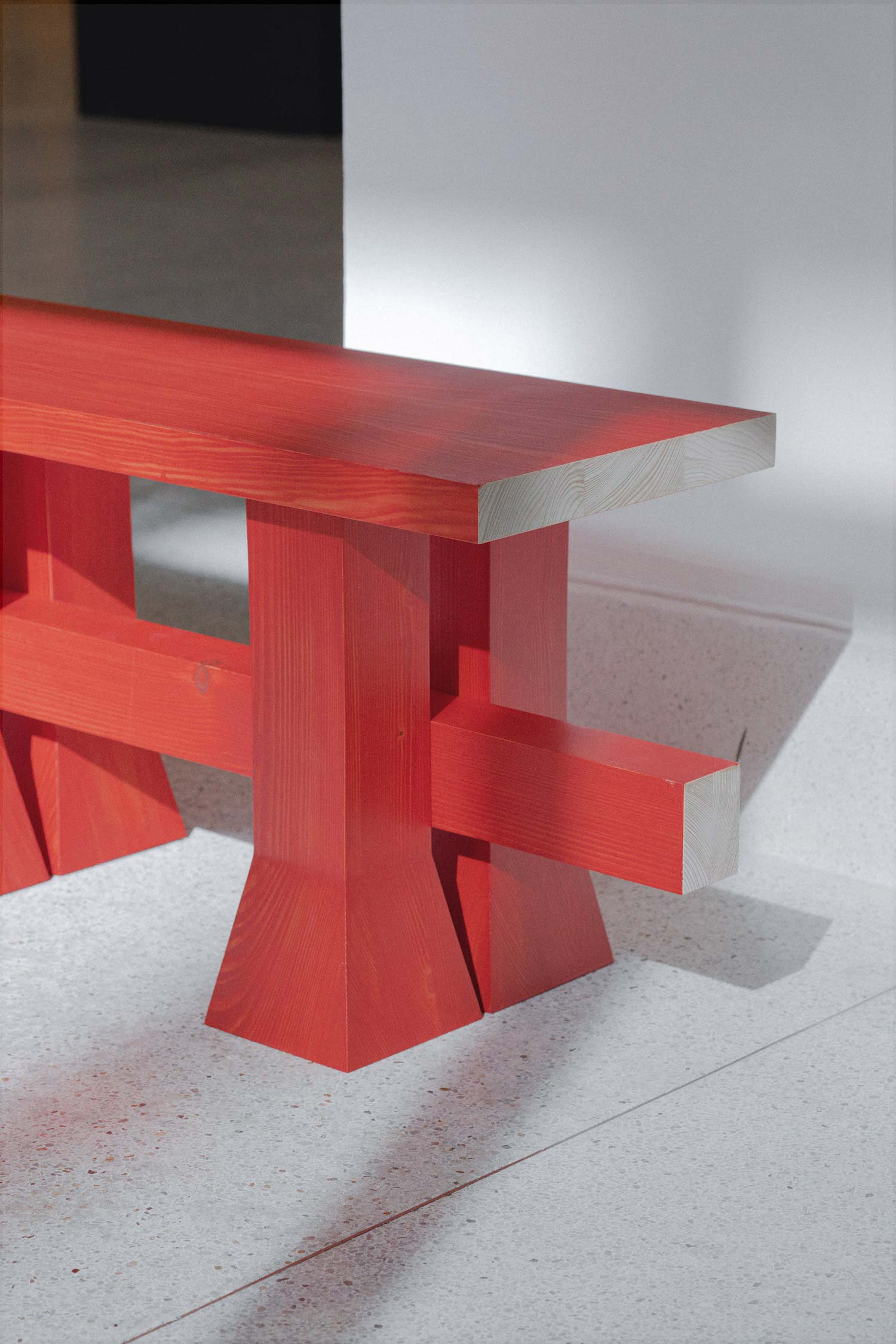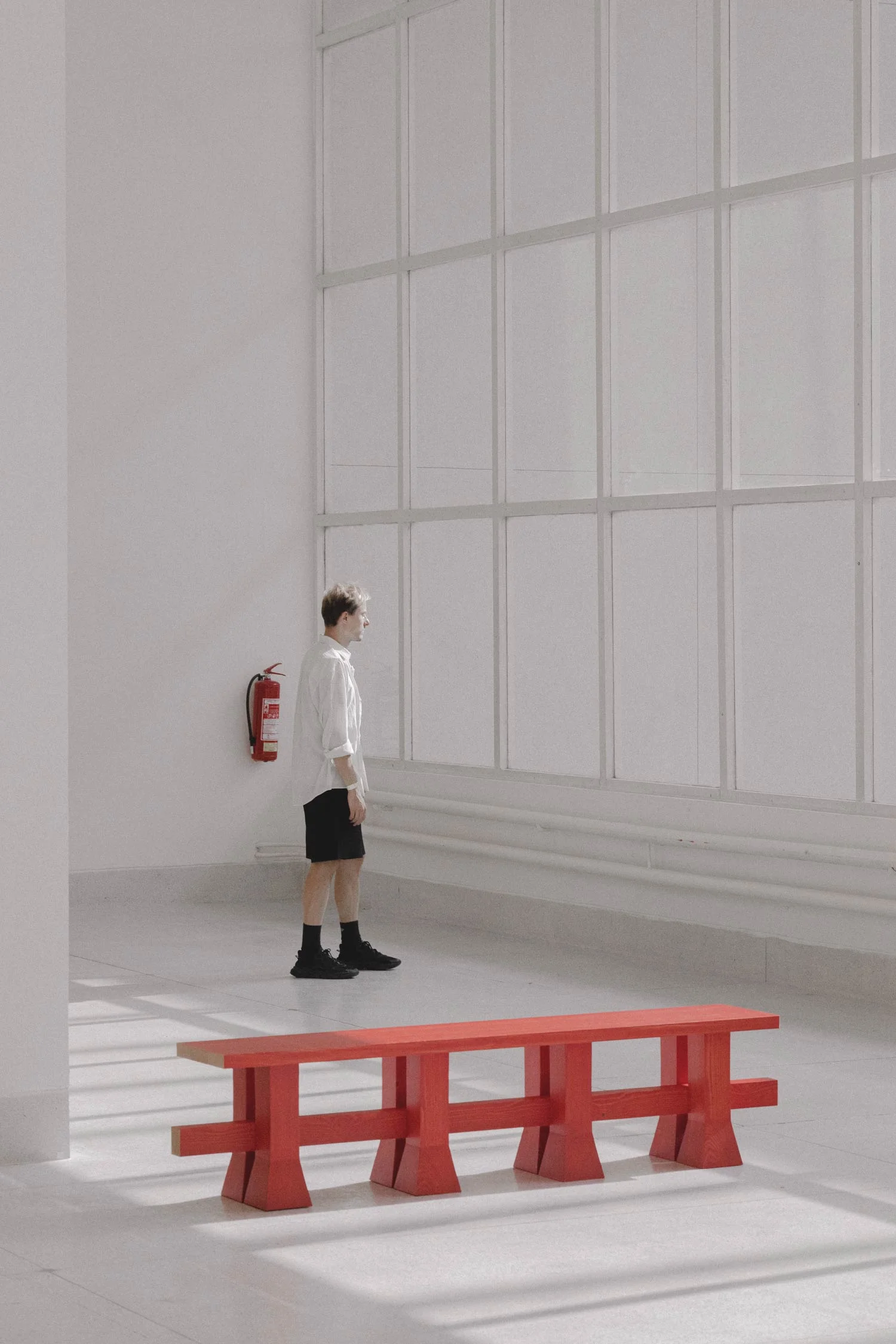Arnaud is a minimalist bench created by Prague-based designer Jiri Krejcirik. At first glance, the Arnaud’s clean lines and measured proportions (2000 x 320 x 440 mm) suggest minimalist restraint. Yet, closer inspection reveals Krejcirik’s masterful understanding of solid spruce wood’s inherent characteristics. The choice of spruce – a material deeply embedded in Czech furniture-making tradition – isn’t merely practical. It carries cultural memory while offering the versatility to accept various finishes, from natural to stained treatments, allowing each piece to develop its own character.
“Whether designing for a client or developing self-initiated projects,” Krejcirik explains, “the same thorough attention to context, process and detail” guides his hand. This philosophy manifests in the Arnaud’s thoughtful construction. The bench’s seemingly simple form belies the complex joinery and careful consideration of wood movement that ensures its longevity – a hallmark of Czech craftsmanship that has persisted since the Baroque period.
The Arnaud bench sits at an intriguing crossroads between utility and artistic expression, reflecting Krejcirik’s broader practice of transcending the art-design divide. Its presence in prestigious venues like Milan’s Rossana Orlandi Gallery positions it within a contemporary discourse about limited-edition design while remaining true to its functional origins. The bench’s modest height and substantial length invite both individual contemplation and collective gathering, suggesting a democratic approach to seating that feels particularly relevant in today’s socially conscious design landscape.
What makes the Arnaud especially compelling is how it embodies Krejcirik’s signature approach of threading historical and cultural elements through a contemporary lens. The bench’s form echoes traditional Czech farmhouse furniture while its execution – with precisely calculated proportions and carefully considered finishes – speaks to modern sensibilities. This temporal dialogue is particularly poignant given Prague’s rich history of furniture craftsmanship and its current position as an emerging center for contemporary design.
